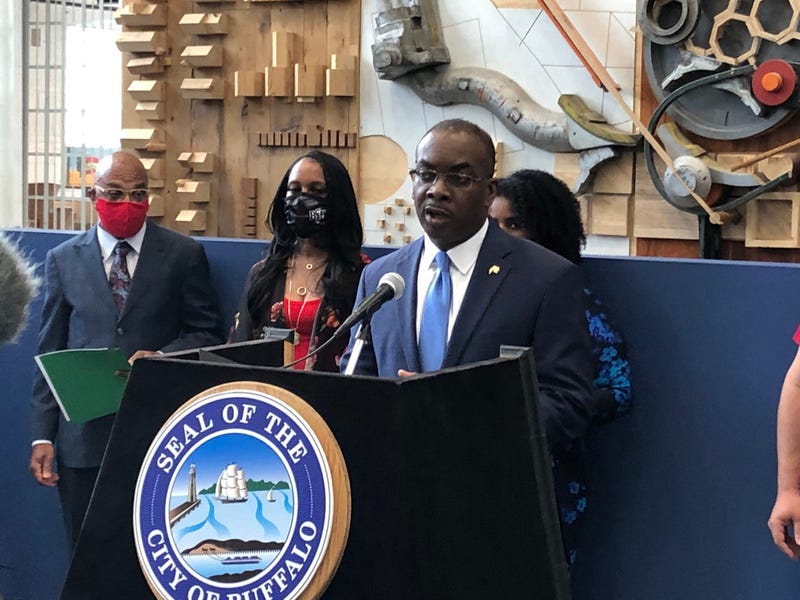
Brown, surrounded by activists ranging from community organizers to NFL players, announced people will no longer be arrested by police if they commit low-level crimes which don’t involve property damage, weapons-related offenses, or large drug sales.
Instead, they will be issued an appearance ticket.
Brown reiterated his plan to stop the enforcement of low-level marijuana offenses, something he previously pledged to do in his State of the State speech in 2019. Now, he said that the possession of marijuana will also no longer be cause for police to search the car or home of an individual.
“This is just the first step,” Brown said. “Look at this as one chapter in a novel.”
The mayor plans give the public better access to body camera footage. Details about how that will happen will come out in a brochure at a later date.
Much criticism was levied against the police department for the lack of transparency over specific policies such as their use-of-force guidelines. The mayor said that those policies will now be accessible online.
Criticism against the department came nationally after video surfaced of two Buffalo Police Officers, Aaron Torgalski and Robert McCabe, pushing the 75-year-old Gugino in front of City Hall. Gugino fell after the push and bled on the sidewalk when his head whiplashed during his fall.
Gugino remains in the hospital and his condition has improved over the last week.
Following that incident, 57 police officers resigned from the Emergency Response Team after the police union said they would no longer pay their legal fees over the stance of local leaders. McCabe and Torgalski were charged with second degree assault.
“(We will) replace the Emergency Response Team’s crowd control duty with a public protection unit that will work with and ensure the safety of any group that wants to peacefully protest in the City of Buffalo,” Brown said.
Brown last week banned the use of choke holds within the department. Choke holds were already not part of the training for BPD.
As the mayor was conducting his news conference, Buffalo Police Benevolent Association President John Evans told WBEN’s Tom Bauerle that they were still in the process of dissecting what the mayor’s executive orders will mean for the police department as a whole.
“There’s always changes that should be made and to improve on things,” Evans said. “We’re not close minded to that. If the opportunity exists where we can resolve problems and improve relations, we’re certainly open to that. We’re no obstructionists in that view.”
Evans said they were not given prior notice to the mayor’s comments.
The union president believes that Officers Torgalski and McCabe should not have been suspended without pay.
Brown said that there will be additional reforms that will have to go through the legislative process.
“This work is about calling everybody who wants to see real reform into the fold,” Brown said. “We are going to be calling on everyone, including the police union, that wants real reform. That wants to really end racial injustice. That wants to really end police brutality to be part of this agenda.”
The mayor described the police union as a barrier in the past to reforms.
“It wasn’t the city that threatened 57 dues-paying members of the Buffalo Police Department, it was the union that threatened them,” Brown said. “If they should not trust anybody, maybe they shouldn’t trust the union.”
Brown called his proposal “common-sense” and hopes that the union will “do the right thing”.
